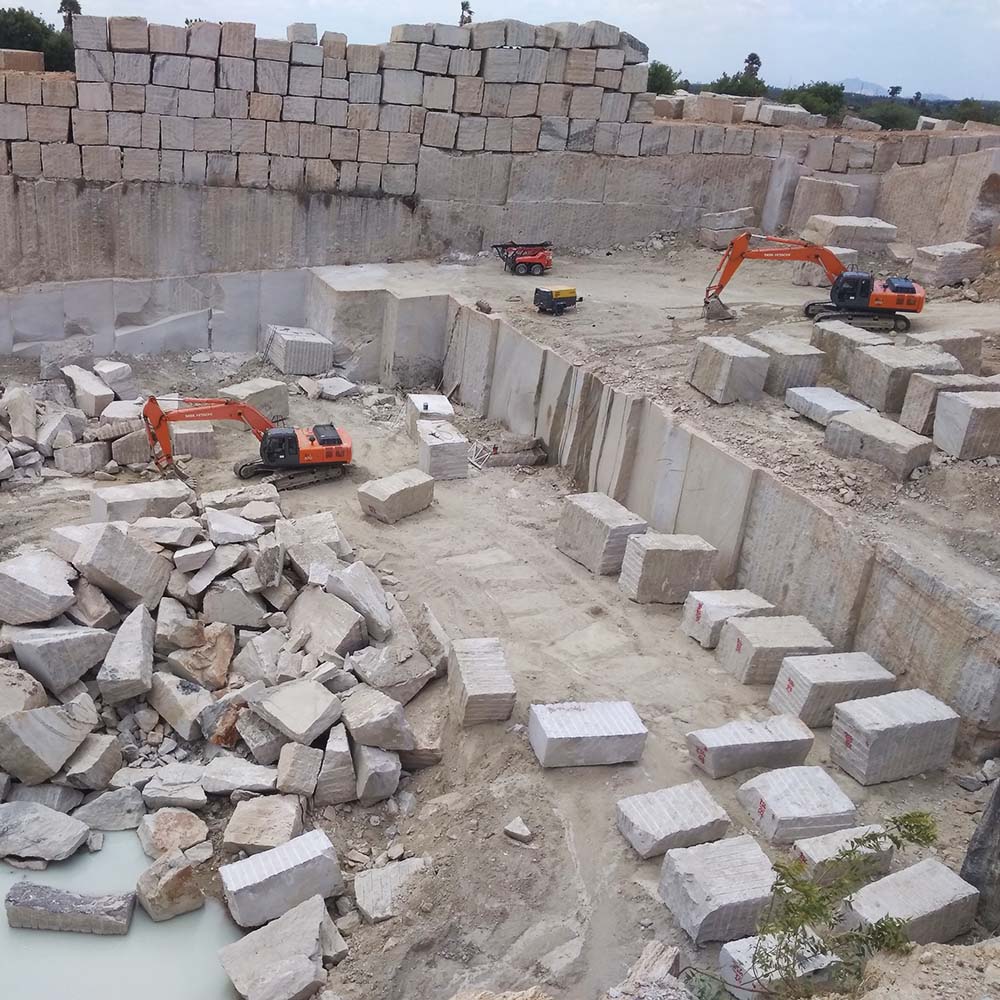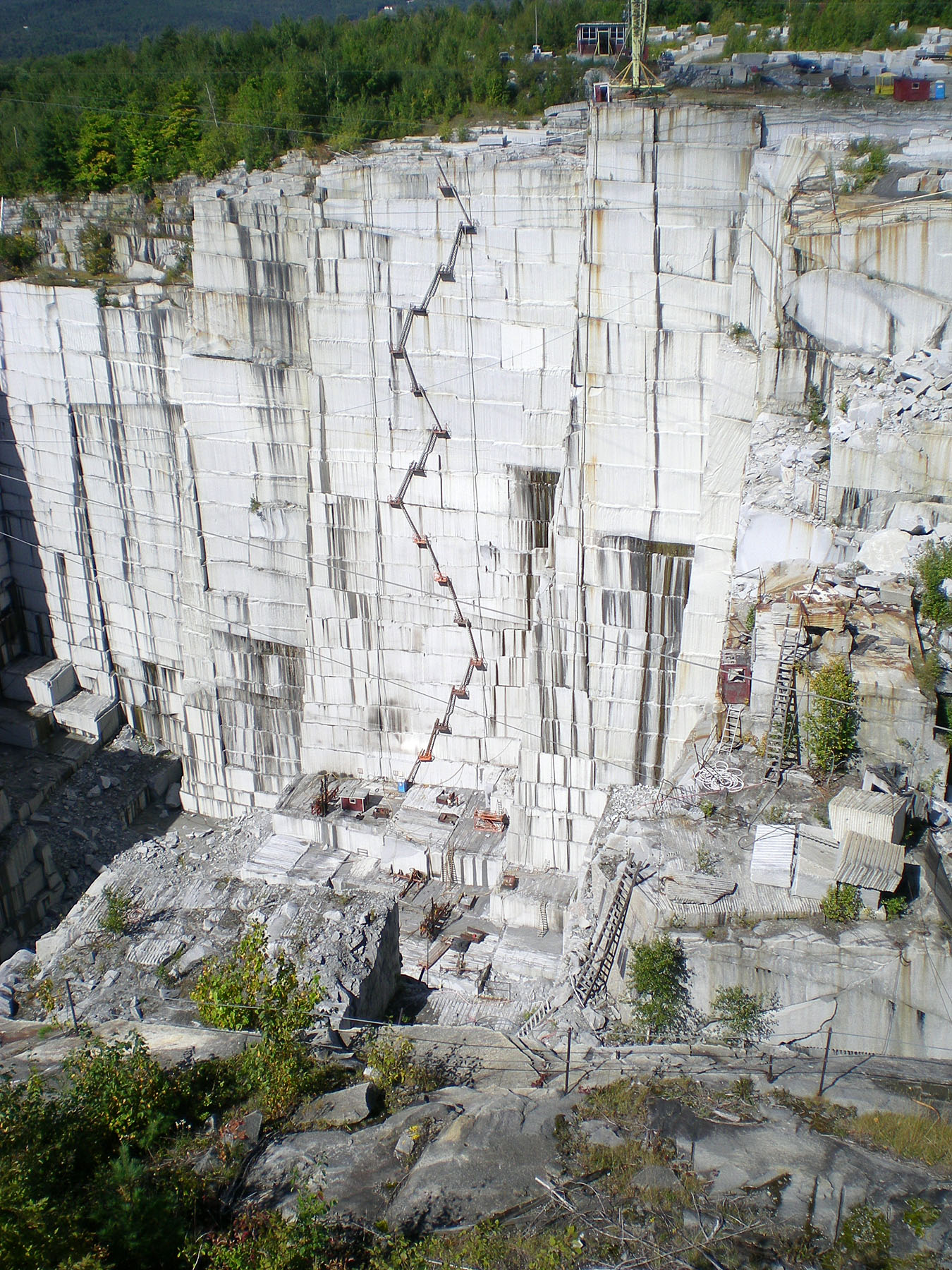Revealing the Mysteries of Granite Quarrying: Where Strength and Style Meet
The world of granite quarrying is a realm where the raw stamina of nature converges with human creativity to create frameworks that stand the test of time with an air of elegance. From the depths of quarries to the careful polishing in workshops, the process of changing granite into architectural marvels is a complicated dancing of tradition and technology. As we peer right into the depths of this ancient craft, we start to discover the concealed details that shape the extremely essence of our developed atmosphere.
The Origins of Granite Quarrying
In the record of architectural history, the origins of granite quarrying are shrouded in a tapestry of ancient craftsmanship and geological marvels. Dating back to ancient Egypt and Mesopotamia, the extraction of granite from quarries noted the start of a trip that would eventually lead to the production of some of the globe's most renowned structures.
Granite quarrying's origins can be mapped to the competent craftsmens that recognized the rock's sturdiness and visual allure. Through a combination of primitive devices and sheer resolution, these very early quarry workers unearthed granite blocks that would certainly become the foundation of worlds.
As worlds developed, so did the methods of quarrying granite. The Romans, renowned for their engineering expertise, established innovative methods for removing granite to construct monoliths, temples, and roads that stood the test of time.
The legacy of these ancient quarrying techniques continues to shape contemporary style, with granite continuing to be a sign of toughness and elegance in building tasks around the globe. (granite quarries in south africa)
Tools of the Quarrying Trade
The evolution of granite quarrying methods from old civilizations to modern times highlights the important role played by the devices of the quarrying sell forming the industry's techniques. In ancient times, quarrying devices were basic, frequently containing chisels, hammers, and wedges made from materials like bronze or iron. These tools required significant manpower and time to remove granite blocks from quarries.

In addition, the introduction of pneumatically-driven tools and high-powered machinery has considerably lowered the physical labor needed in quarrying procedures, improving employee safety and productivity. As the quarrying market remains to innovate, the tools of the trade remain at the center of great post to read driving progression and forming the future of granite extraction.
Extracting Blocks of Granite
Using accuracy equipment and advanced methods, the extraction of granite blocks from quarries has actually come to be an advanced procedure in the contemporary quarrying market. Managed blasting techniques are then used to damage apart the granite into manageable sections.

Polishing and Completing Techniques
To achieve a remarkable surface area on granite blocks, proficient artisans employ a series of careful polishing and finishing methods. After the initial extraction and forming procedures, the granite blocks go through a complete sprucing up stage to boost their natural beauty and longevity. One common method used in polishing granite is diamond abrasion, where industrial rubies are made use of to grind and brighten the rock to a smooth surface. This process not only develops a glossy surface area but also guarantees harmony in color and structure across the granite block.
In addition to polishing, completing methods are applied to additional fine-tune the granite's appearance. These strategies may consist of flaming, refining, or brushing, each offering special appearances and surfaces to match various visual choices. Flaming, as an example, involves subjecting the granite surface to heats to create a harsh, distinctive coating, suitable for exterior applications where slip-resistance is important. Honing, on the various other hand, gives a matte surface that is smooth to the touch, ideal for indoor kitchen counters and floor covering. By very go right here carefully selecting and applying these brightening and ending up strategies, artisans can transform raw granite obstructs into beautiful pieces that showcase both stamina and elegance.

Ecological Effect and Sustainability
With the growing emphasis on environmental consciousness in the market, granite quarrying this contact form methods are significantly looked at for their effect on natural deposits and long-lasting sustainability. Quarrying for granite can have substantial environmental effects. The extraction process typically involves making use of heavy machinery, explosives, and huge amounts of water, leading to habitat damage, dirt disintegration, and water air pollution. In addition, the transportation of granite from quarries to processing facilities produces carbon emissions, even more contributing to environmental deterioration. granite quarries in south africa.
To minimize these impacts and ensure sustainability in granite quarrying, market stakeholders are embracing various procedures. Executing innovative innovations to reduce power intake and water usage, reclaiming quarried land for environmental remediation, and promoting accountable sourcing methods are some techniques being utilized. Additionally, accreditations such as the Forest Stewardship Council (FSC) and the Leadership in Power and Environmental Design (LEED) help customers recognize eco-friendly granite products.
Final Thought
To conclude, granite quarrying is a procedure that needs specialized devices and methods to extract blocks of granite and brighten them to a high level of coating. While the ecological effect of quarrying can be significant, initiatives are being made to enhance sustainability practices in the market. In general, granite quarrying is a delicate equilibrium between harnessing the toughness and elegance of this natural stone while lessening its effect on the atmosphere.
Comments on “Checking Out Granite Quarries in South Africa Market: From Quarry to Work of art”